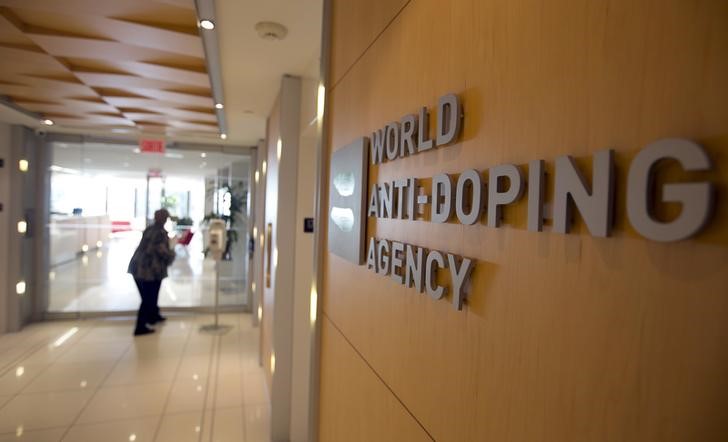(Reuters) - Citing a lack of progress in enacting serious doping reforms, Russian track and field athletes should not be allowed to compete at the Rio Olympics, Athletics Canada said in a letter to IAAF president Sebastian Coe on Thursday.
The International Association of Athletics Federations (IAAF) Council will meet on Friday in Vienna to decide if Russia, currently suspended from international track and field competition, will have the ban lifted clearing a path for them to compete at the Rio Summer Games.
"On Friday June 17, the IAAF Council will make a transformative decision for our global athletics community when the Council meets to decide whether the Russian Athletics Federation will be reinstated to allow participation in the Rio Games," said Athletics Canada Chief Executive Officer Rob Guy in an open letter to Coe.
"While we acknowledge some modest progress has been made in Russia, Athletics Canada feels strongly there is little evidence of a reversal in a systematic and deep rooted doping culture in Russian Athletics, and therefore there is no justification to grant re-inclusion."
Russia was suspended from all track and field in November after an independent report from the World Anti-Doping Agency (WADA) revealed widespread state-sponsored doping.
After a task force reported back that the country appeared to have made little progress on reforms, the IAAF Council voted in March to maintain the ban.
Any thoughts, though, that Russia may have had about winning over the doubters among the IAAF Council members were probably dashed on Wednesday when WADA released another damning report.
It said that Russian athletes have continued to fail drug tests and obstruct doping control officers in the months when they are supposed to be showing that there has been a change of culture in their approach to the problem.
According to the report, Russian athletes returned 52 adverse findings, including 49 for meldonium. It also said there were 23 missed tests, which the report called "significant", 111 whereabouts failures and 736 tests were declined or cancelled.
"We have a fundamental obligation at the IAAF and at Athletics Canada to ensure our athletes know, when they line up in Rio, that they and their competitors are competing on equal terms," continued Guy. "We empathize with Russia’s clean athletes who achieve their dreams through clean hard work.
"Unfortunately, their federation has failed them and the ongoing recent revelations of non-compliance, lack of cooperation and widespread individual doping violations from previous Olympics cause one to be skeptical about any Russian performances.
"We encourage the IAAF to err on the side of caution to protect the integrity of our sport and the Olympic movement."
Even if the Russians are granted amnesty by the IAAF, they will still have one more hurdle to clear with the IOC having the final say on whether they will be allowed into the Rio starting blocks.

The IOC has said that final decision will be taken at a meeting in Lausanne on June 21.